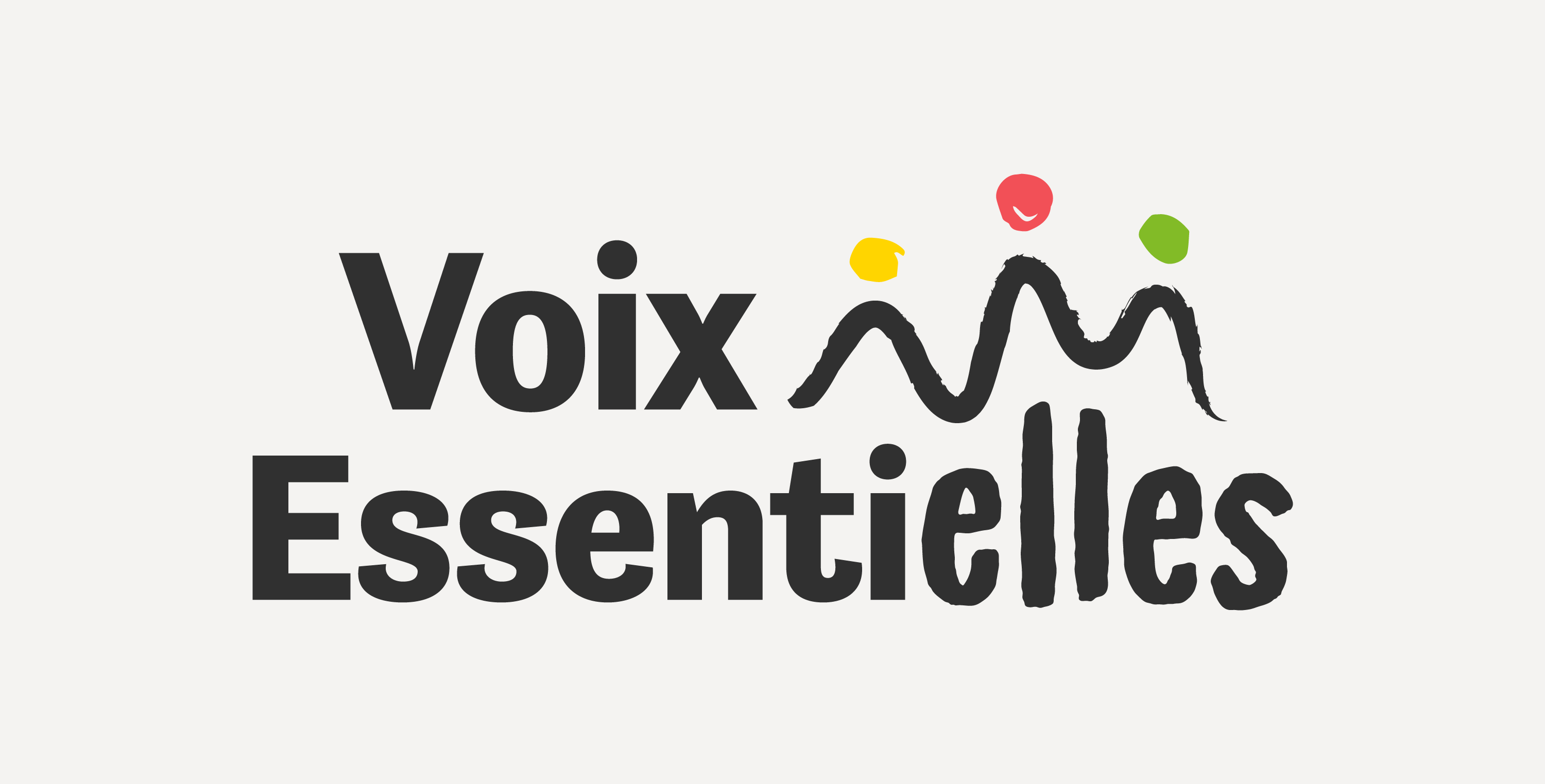
Voice, decision-making and leadership are vital factors for the empowerment of women. These factors ensure that women can express their preferences, demands, views and interests, and that they can gain access to decision-making positions. Only when women and girls are empowered and supported to actively participate in decision-making processes can effective policies, based on their concrete experiences, which take into account gender differences and cultural sensitivities, be developed and implemented.
Voix EssentiELLES aims to strengthen women and girls, in all of their diversity, by meaningfully engaging them in decision-making processes and spaces that influence health policies and programmes.
Managed by the Dakar-based policy and advocacy tank Speak Up Africa, and strategically supported and co-funded by Fondation CHANEL and The Global Fund, Voix EssentiELLES was launched in July 2021 to support the efforts of various women-led community-based organisations with a fund and capacity-building programme, through the University of ExcELLEnce, in Burkina Faso, Côte d’Ivoire and Senegal.
24 civil society and community-based organisations were chosen from across these three countries. Particular attention has been paid to the issues of gender-based violence, reproductive health and the fight against tuberculosis, HIV/AIDS and malaria.
Organisations taking part in the initiative
In Burkina Faso
- Association pour l’Intégration Économique et Sociale des Femmes dans le développement, IES FEMMES
- Les Héroines du Faso
- FEMIN-IN
- AGMS, Association aucune Grossesse en Milieu Scolaire
- Association Soutien aux Enfants et Femmes Vulnérables
- Association Bétouré des femmes
- Association pour la Défense des Droits des Aides ménagères et domestique, ADDAD
- Association des Femmes Handicapées Battantes, AFHBB
In Côte d’Ivoire
- Organisation pour la Santé de l’Enfant, de la Femme et de la Famille, OSEFF
- Mouvement pour l’Indépendance et l’Épanouissement de la Femme, MIEF
- GNOUWIETA
- Union Nationale des Femmes Handicapées de Côte d’Ivoire, UNAFEH-CI
- Conscience et Vie, COVIE
- Jeunes Engagées pour une Sexualité Saine, JESS
- Association des Femmes Unies de Gbougbô 2, AFUG2
In Senegal
- JGEN Femme Partenariat mondial
- ABOYA
- Femmes de diamant
- Association Sénégalaise pour l’Avenir de la Femme et de l’Enfant, ASAFE
- KIRAAY
- Réseau des Jeunes pour l’abandon des Mutilations Génitales Féminines
- Fass Diom
- Association pour le Maintien des Filles à l’École, AMFE
- Le Club des jeunes filles de Kolda
Voix EssentiELLES Advisory Committee
Made up of experts, this committee was established in September 2021 to guide Speak Up Africa in the implementation of the Voix EssentiELLES initiative, including the development and implementation of engagement strategies and a capacity building programme.
Members of the committee in Senegal:
- Pr. Ndioro Ndiaye, Coordinator of the Francophone Network for Gender Equality at the Organisation Internationale de la Francophonie
- Ndeye Mingue N’Diaye Gackou, Coordinator of the Gender Unit at the Ministry of Health and Social Action of Senegal
- Nogaye Sow, « Badiénou Gokh » President of the Thienaba health mutual, Member of the local cereal processing unit of GIE Fass Diom
- Rajah Sy, National Director of Special Olympics Senegal
Members of the committee in Côte d’Ivoire:
- Aissata Sidibé N’Dia, Journalist
- Ms Sylla Awa, Technical Advisor to the Minister for Women, Family and Children
- Mr Arthur Athea, Head of the NGO Association Anonyme (LGBTQ)
- Sister Emmanuelle, Founder and Head of the NGO Y-Voir et Sourire
Members of the committee in Burkina Faso:
- Pr. Nicolas Méda, Special Advisor to the President of Burkina Faso on Human Capital Development
- IDO B Joseph, National Executive Secretary of the African Youth Health Network (AYHN)
- Simon Kaboré, Executive Director RAME (Access to Essential Medicines Network)
- Cécile THIOMBANO, Head of Advocacy Médecin du Monde France
- Kadoua ABEM, Secretary General of the Djouatiina Association and of the Network of Associations for the Promotion and Protection of Human Rights in Nahouri.
Follow the news of the initiative
Neglected tropical diseases (NTDs) and malaria disproportionately affect the poorest members of society and are a major obstacle to Africa’s economic and social development.
These diseases have begun to receive increased attention from the international community, with a number of international declarations and commitments being signed around the world, with leaders pledging to prioritize the control and elimination of these diseases. Thanks to the commitments made by President Paul Kagame and the heads of government of many countries, the Commonwealth Heads of Government (CHOGM) Summit in Kigali, Rwanda, in June 2021 provides an opportunity to garner global attention and accelerate action to end these preventable and treatable diseases. It is also important community engagement from the onset ensures acceptance of communication messages and implementation of local NTD and malaria initiatives.
| Follow the campaign’s progress! |
Information is a vital resource during an emergency. Yet, COVID-19 is sparking significant fear and misinformation across the world. To promote access to reliable evidence and information, local experts must be ready, available and prepared to speak credibly in ways that resonate locally. Currently, significant misinformation around the research and development of new tools, from vaccines and therapeutics to diagnostics and disease surveillance, is hampering the ability for Africa to proactively shape its research agenda. Moreover, misinformation could slow the development and delivery of innovation – impeding clinical trial recruitment and the acceptability and uptake of new tools and measures to prevent, treat and diagnose diseases that hamper the development of our continent.
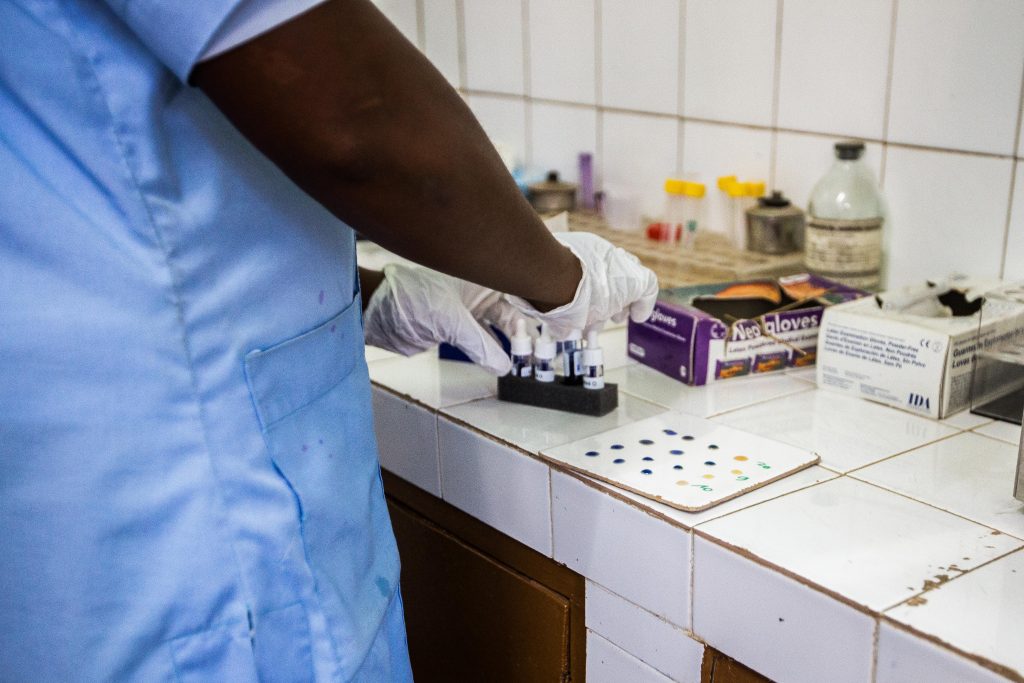
The COVID-19 crisis has continued this trend, at a time when it’s vital for local experts to be providing sound, factual information to help people interpret data and guidance, understand risks and appropriately respond to their local context. From public health to scientific research to the economy, there is a great deal of misinformation and speculation being spread via traditional and social media.
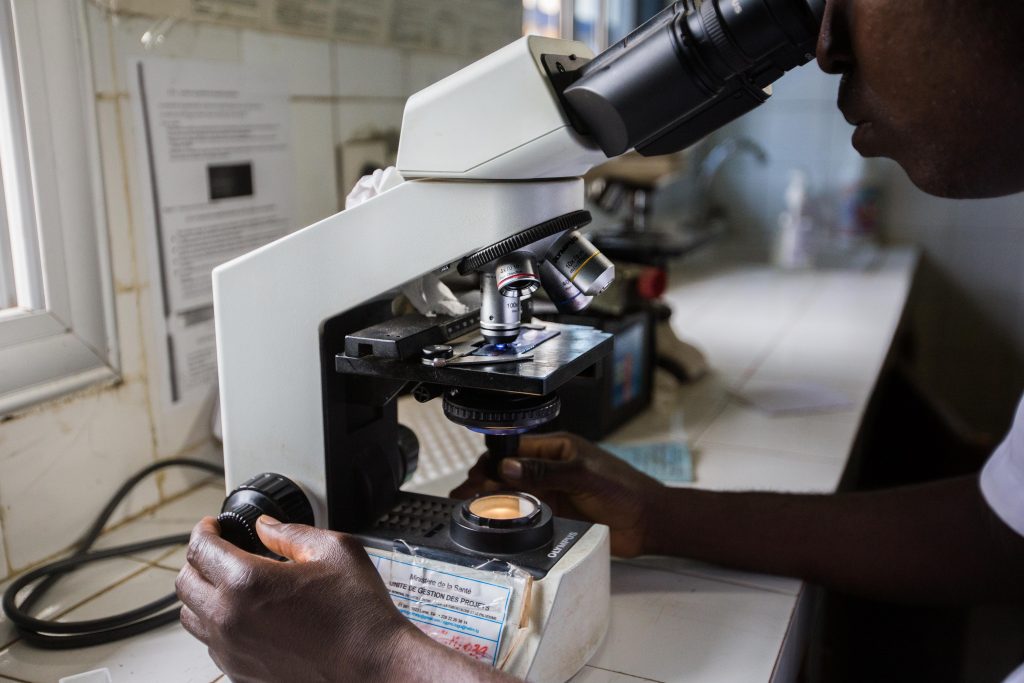
However, innovations in medical research over recent years have led to incredible achievements for public health in Africa. The African Voices of Science initiative aims to provide a platform for trusted African science leaders and health experts to share reliable information with African populations. Covering topics ranging from COVID-19 vaccine trials, to emerging new research in infectious diseases, we need to hear from credible voices, their perspectives and potential solutions to our health concerns.
Speak Up Africa is committed to promoting research and development (R&D) and encouraging scientific innovations as part of public discourse in Africa.
| More information |
The Africa Young Innovators for Health Award is a flagship programme launched by the International Federation of Pharmaceutical Manufacturers and Associations (IFPMA) and Speak Up Africa to recognize and reward innovative projects by young African entrepreneurs in the health sector. It is supported by AMREF Health Africa, BroadReach, Ecobank Academy, the Galien Foundation, IntraHealth International, Microsoft 4 Afrika, RBM Partnership to End Malaria, Social Change Factory, Africa.com and Scidev.net.
IFPMA and Speak Up Africa launched this award to provide an opportunity for young entrepreneurs in the health sector to develop innovative health projects. Indeed, Africa has almost a quarter of the world’s disease burden, but only 3% of the world’s health workforce and the continent is the youngest on the planet with 22% of its working age population owning a business. The first edition of the award, launched in December 2021, highlighted innovative solutions aimed at supporting health professionals who are leading the way in delivering care and promoting health. Applications were judged based on the project’s innovation, development potential and measurable and sustainable impact in supporting healthcare professionals.
The winners were awarded:
- Financial support worth a total of US$75,000
- A three-month business mentoring programme
- Training in media techniques
- Experts’ advices on intellectual property protection
- Access to a network of partners working in the digital, healthcare and media sectors
300 applications were received, 60 were selected, 15 shorlisted and 3 winners won the prize in September 2021:
1st Prize
Conrad Tankou, CEO, Global Innovation and Creative Space (GIC Space)
Founded by Dr Tankou, Global Innovation and Creative Space (GIC Space), through its flagship product GICMED, aims to reduce breast and cervical cancer mortality rates in disadvantaged communities in Africa and in rural areas that generally lack access to cancer care services. GICMED includes smartphone-based digital microscopy and colposcopy systems, as well as a telemedicine platform to enable women living in the most remote areas to be screened and diagnosed for these cancers on site by specialist doctors.
2nd Prize
John Mwangi, CEO of Daktari Media Africa
Daktari Online, a product of Daktari Media Africa, is an online medical resource platform that allows the health professional community to interact, educate themselves, publish research articles, attend training and earn Continuing Professional Development (CPD) points. Founded by John Mwangi, a computer scientist, Daktari Online currently supports the learning objectives of over 9,000 Kenyan health professionals for assessment and renewal of their licenses, providing relevant content created by experts in an easy-to-access format and helping health care providers collect evidence of their learning.
3rd Prize
Imodoye Abioro, CEO of Healthbotics Limited
Through its Mediverse product, Healthbotics uses artificial intelligence to power electronic medical record systems that allow healthcare professionals to enter and retrieve patient records using voice recognition, with or without internet access, on any device. Mediverse provides doctors with a virtual digital assistant that captures and records critical clinical data, prescriptions, treatment analyses and prognostic assessment while providing patient care.
Featured on CNN Inside Africa
Find out more about the Award
Raising the profile of immunization in Africa
The COVID-19 pandemic presents a two-fold challenge in Africa: curbing the spread of the coronavirus, whilst also maintaining access to essential health services for those suffering from other diseases. As COVID-19 requires an immediate response, it is crucial that health services are protected and progress in tackling issues such as malaria, immunization, neglected tropical diseases and inadequate access to sanitation is not compromised. The campaign’s objectives:
- Raise the profile of immunization in Africa and ensure equitable access to vaccines.
- Unite multiple sectors in pan-African response to the Covid-19 pandemic.
- Create a mass media, digital communications and advocacy campaign using influential figures to deliver key preventative messages.
Immunization is the most cost-effective health intervention known to mankind. When countries can successfully provide vaccines to their children, they are already making an immense difference to the health of their citizens. Yet, globally, 1 in 5 children are still without access to even the most basic vaccines. A successful immunization program can contribute to stronger overall health by providing a structural foundation for national health systems.
Together with our partners, we contribute to increase immunization coverage levels in Africa by:
- Raising the profile of immunization on policymakers’ agenda.
- Promoting sustainable resource allocation for immunization at country level.
- Increasing the visibility of good practices and accomplishments of EPI programs throughout the continent.
- Strengthening coalitions in support of immunization.
- Increasing demand from communities of quality immunization service.
Learn more at www.staysafeafrica.org
Since 2015, Speak Up Africa has worked on filling the knowledge gap around menstrual hygiene management (MHM) in Senegal. To gain a better understand of MHM, Speak Up Africa conducted in 2016 a qualitative study to collect the variables and key indicators that define and explain the behaviors, attitudes and practices of girls and women during their menstruation period. To further its research, SUA conducted a quantitative and qualitative study in July 2017 in Pikine and Guédiawaye. Both cities regroup 50.7% of the total population of the Dakar region. The results from this latest study demonstrated that the subject of menstruation perpetuates shame amongst 55.81% and fear amongst 40.34% girls and women, with an 83.56% not being prepared to welcome their first menstrual cycle. In addition, there is a lack of access to clean and secure toilets leading to immense long-term repercussions and influence on women’s health, education and living conditions. This lack of access also has other effects including:
- A significant impact on attendance and academic performance within the schoolgirls surveyed, 45.12% reported their inability to attend school regularly during their menstrual cycle.
- A loss of productivity amongst female employees surveyed reporting missing an average of 2.5 days of work per month.
- Women in the informal sector estimate the shortfall of one to three days of inactivity, i.e. estimated economic losses from $3 to $75 depending on the type of activity.
To contribute to reducing these challenges, Speak Up Africa launched the “No Taboo Periods” campaign, which is meant to:
- Help break the silence around menstruation
- Raise awareness about the role of MHM as a public health priority in public policies
- Generate political support on the issue while helping girls and women reach their full potential.
To maximize community engagement around the issue of MHM, Speak Up Africa created “The Lab” in Pikine, where the majority of the population lives on less than $2 a day. The Lab was meant to be safe haven where women, girls, boys and men can freely discuss and exchange on issues related to MHM. Speak Up Africa worked in close collaboration with the Health District of Pikine to ensure our activities were fully integrated within the practices of the health pyramid. With the help of community health workers, neighbourhood godmothers, youth and women associations, Speak Up Africa reached about 12 000 people with key messaging around MHM.
In August 2017, Speak Up Africa was invited to participate in the National Girls’ Camp organized by the Office of the First Lady of Sierra Leone, her Excellency Sia Nyama Koroma, in order to facilitate a workshop on menstrual hygiene management. During this interactive workshop, dialogues took place with the 100 girls in attendance to learn about their perceptions and attitudes regarding menstrual hygiene management. We also distributed kits including reusable sanitary pads produced by ApiAfrique and communication materials presenting key MHM messages.
In December 2020, thanks to a partnership with l’Organisation internationale de la Francophonie, Speak Up Africa started an initiative with Kitambaa, a social enterprise, which aims to provide to every young African girls and women of childbearing age with a kit of reusable pads that meets their hygienic needs, in order to enable them to participate equitably in the development of their country, by mitigating the upheavals – in their education and in their lives – caused by their periods and the lack of accessibility of disposable hygiene products and adequate infrastructure. Our joint initiative called “Menstrual hygiene management: from taboo to economic empowerment” strives to set up a mobile menstrual hygiene management lab whose pilot phase targets the communities of Sandiara, in Senegal.
From neglected tropical diseases (NTDs) to malaria, to diseases which can be prevented by vaccines or caused by unsanitary conditions, millions of people across Africa continue to suffer from preventable and treatable diseases that create barriers to education, employment, gender equality, economic growth and overall development. To create sustainable change, raise public awareness and hold decision-makers accountable, the role of the media is absolutely essential. Through regular, quality reporting on these key public health issues, journalists can become powerful agents of change, enabling us to collectively reach our sustainable development goals on the continent
The Lines of Impact initiative aims to strengthen the journalists’ capabilities and generate quality media coverage on these issues. In partnership with journalists across the continent, we are working to increase the quantity and quality of reporting on the issues we care about: neglected tropical diseases, malaria, immunisation, gender equality, research and development and sanitation. Through this initiative, we are ensuring that these issues and their solutions are at the heart of media conversations. By ensuring a steady stream of media coverage, the initiative raises awareness among the general public and our decision makers and amplifies the voices of those affected or marginalised across the continent
Launched in 2021, the first edition of « Lines of Impact » focused solely on the fight against NTDs, on World NTD day on 30 January. 13 articles and a video were produced. In 2022 we have broadened the project’s themes so that the journalists taking part can communicate on all the areas we care about, and engage our champions, influencers and key voices.
The following journalists are taking part in the initiative in 2022:
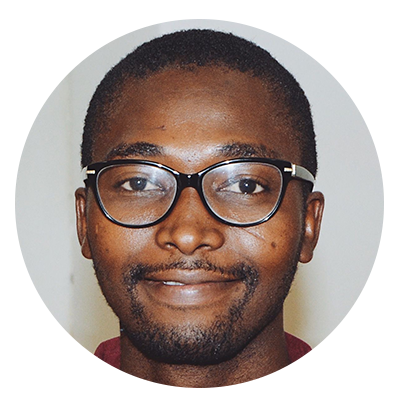 |
Abdullahi Tsanni, Nigeria |
|
Abdullahi Tsanni is a science journalist based in Abuja, Nigeria. He reports on science, health, agriculture and biotechnology issues in Nigeria for media such as Nature, AllAfrica, Cornell Alliance for Science, Nigeria Health Watch and African Newspage. Abdullahi interviewed top scientists from across sub-Saharan Africa, detailing stories of their research, their work space and their scientific work on the continent. He volunteers with the Science Communication Hub Nigeria and the African Science Literacy Network. Abdullahi is a biochemistry graduate and a prospective MSc student in scientific communication at Imperial College London. |
|
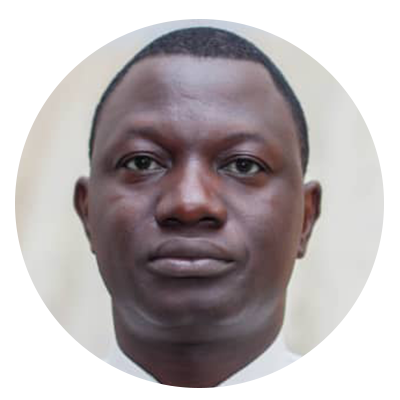 |
Alain Tossounon, Bénin |
|
Alain Tossounon has a Master’s degree in Journalism & Media and has been a journalist for about 15 years. Editor-in-Chief and then Managing Editor of “Le Municipal”, a weekly specialising in decentralisation and local governance, he completed several certificates in water, natural resources and sanitation management before becoming a senior reporter on water, sanitation and hygiene (WASH). Working on these matters for several years, he has covered the major events of recent years, including the 1st World Sanitation Forum in Mumbai, India in 2009, the 6th World Water Forum in Marseille in 2012 and the 7th Forum in Daegu, South Korea in 2015. Today, he has built a solid reputation with numerous awards in Benin and internationally, including the prestigious WASH Media Awards 2012 in Stockholm for publications on water, sanitation and hygiene. Alain is also known as an activist on water, hygiene and sanitation challenges. He currently heads the West African Journalists’ Network for Water, Sanitation and Hygiene (WASH-JN) which includes 15 West African countries and Cameroon.
|
|
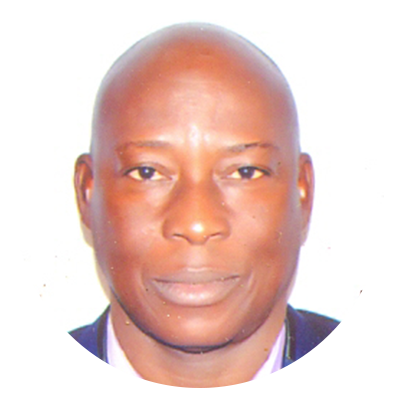 |
Amani Mounkaila Boureima, Niger |
|
Amani Mounkaila Boureima is a journalist and communicator. He is Publication Manager of the Nigerian weekly “La Source”. He is also a member of the Network of Journalists for Water, Hygiene and Sanitation (REJEA), the International Francophone Press Union (UPF) and the Platform of Nigerian Journalists for Nutrition (PJ2N). |
|
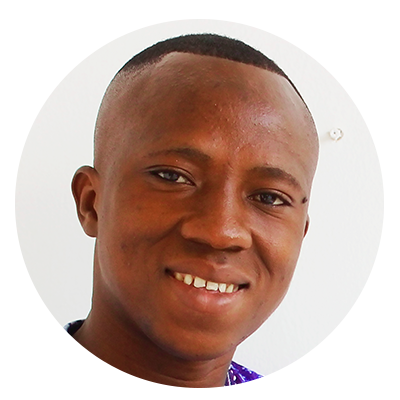 |
Harouna Drabo, Burkina Faso |
|
Trained in communication and international relations, Harouna Drabo is a fact-checker journalist at Fasocheck, an editorial initiative dedicated to the practice and promotion of fact-checking in Burkina Faso. He is passionate about blogging, and has already been named the best blogger in Burkina in 2019 for his publications on water and sanitation issues. Focussing on public policies for development and the challenges of accountability, Harouna Drabo is a freelance journalist contributing analysis about socio-political news from Burkina Faso and the sub-region for various media since 2015. |
|
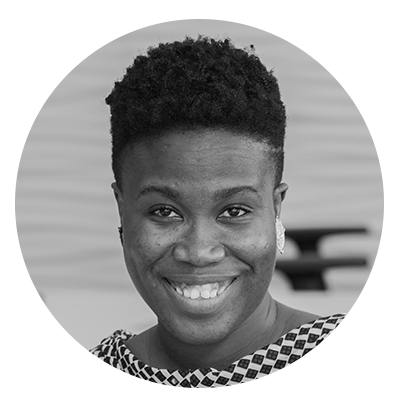 |
Orphelie Thalmas, Côte d’Ivoire |
|
Orphelie Thalmas is an Ivorian communications specialist and editorial consultant specialising in art, culture and feminism. She lives in Abidjan and has collaborated in particular with Bayard Presse, The Guardian, Elephant Afrique, the Goethe Institute, and Quartz. She is known for moderating debates on socio-political issues and leading media workshops (UNICEF Burkina, Friedrich-Ebert-Stiftung Foundation, etc.). |
|
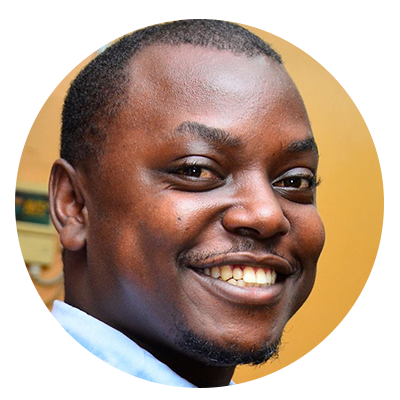 |
Stephen Kafeero, Ouganda |
|
Stephen Kafeero is a Ugandan investigative journalist. He has been active since 2010, contributing to various publications including the Daily Monitor, MSN, Quartz, AllAfrica, The East African, The Citizen (Tanzania), NTV-Uganda and The New Frame. In 2021, he was awarded an Open Society Foundation Fellowship in Investigative Journalism at the University of the Witwatersrand in Johannesburg, where he completed a Masters in Journalism and Media Studies. Stephen is also a member of the editorial board of the ZAM Kleptocracy project. |
|
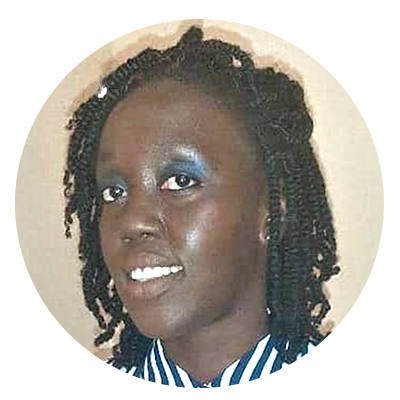 |
Viviane Marie Joseph Diatta, Sénégal |
|
Viviane Diatta is a journalist specialising in health at EnQuête, a privately-owned daily newspaper which she joined in September 2011. She is on the Eco-social Desk, which deals with Economic, Educational, Environmental, Health and Social issues. She is the coordinator of the Association of Journalists in Health, Population and Development (AJSPD), created in 2009. With a master’s degree in journalism and communication, she is a member of the Media Association on Tobacco Control in West and Central Africa. |
|
Read the 2021 Lines of Impact brochure
Promoting Safely Managed Sanitation in Africa
Sanitation is a key focus area for Speak Up Africa. Today, more than 2.4 billion of the world’s population do not have access to basic sanitation services, such as toilets and latrines. This is a particular problem in Sub-Saharan Africa, where the rate of access to basic sanitation services is only 28% with 32% of the population still practicing open defecation.
When fecal sludge and wastewater are not safely contained, they escape into the environment polluting the places where people live, work, and play. Poor sanitation management highly exposes women, children and men to fecal borne diseases such as diarrhea, neglected tropical diseases and malaria. Those diseases harm human and economic productivity of entire communities and countries.
In 2016, we launched our Golden Sludge campaign, working in close collaboration with national institutions that are directly responsible for the development and implementation of sanitation programs. The Golden Sludge campaign aims to increase awareness, prioritization levels and commitment to improve access to adequate and equitable sanitation for all in Africa. In this sense, the campaign aims to:
- Increase political commitment to the Africa Sanitation Policy Guidelines (ASPG) to trigger policy review, development and implementation.
- Build the capacity of civil society organizations to support the endorsement of the ASPGs, their implementation and to maintain ongoing dialogue around policy change.
- Contribute to an enabling environment at the national level for safely managed sanitation.
As part of this effort, we collaborated with Niyel on the West Africa Sanitation Policy Activator, a 3-year project implemented between 2018 and 2020 to support governments towards increasing the access to and use of non-sewered sanitation in Francophone West Africa. This was achieved through a three-tiered approach which directly targets: municipalities, policy- making at the national level and strong engagement at the regional level. Learn more here.
Finally, to effectively reach our goal of creating awareness and improving access to adequate sanitation at a continental level, we launched an alliance of like-minded organizations called CAPOOP, Communications, Advocacy, Policy Opportunities and Outreach for Poop. It is a platform aiming to coordinate our collective advocacy efforts towards raising the profile of sanitation and increase resource allocation for its management across Africa.
Learn more at www.capoop.org.
Speak Up Africa has set out to alleviate suffering from Neglected Tropical Diseases by galvanizing action among policymakers, citizens and civil society organizations. We also work closely with government departments to build sustained leadership, mobilize foreign and domestic resources and improve the use of NTD data for decision-making.
To bring these diseases out of the shadows, we have organized sporting events to engage youth and highlight the neglect in NTDs; partnered with media to increase the volume and quality of reporting on NTDs; and launched a large-scale “No to NTDs” movement and coalition to increase awareness, prioritization and national commitment to accelerate the control and elimination of NTDs in Africa, and more.

Sustained global efforts to reduce the number of malaria cases and deaths over the last two decades have saved more than 7 million lives and prevented more than 1 billion cases. Nevertheless, despite this incredible progress, malaria is still a threat to people around the world, causing more than 627,000 deaths in 2020 – with more than 90% of these deaths occurring in sub-Saharan Africa.
In some African countries, malaria reduces GDP growth by up to 1.3% according to estimates and places a heavy burden on private sector businesses. The illness continues to affect business profits across the entire African continent and beyond, through employee absenteeism, reduced productivity and increased service costs. Malaria among company employees also increases the potential for transmission to the wider local community, which in turn has an impact on the local economy through deterioration of human capital, loss of savings, investments, and tax revenues.
Private sector participation in malaria control and elimination can boost national goals by rationalising the use of resources and strengthening the partnership around National Malaria Control Programmes.
The private sector has a clear interest in achieving malaria elimination, as a healthy workforce leads to a healthier economy. According to the World Malaria Report 2021, in 2020, funding for malaria control was estimated at USD 3.3 billion against a target of USD 6.8 billion. Thus, current funding levels will need to more than triple by 2030 to meet global targets (USD 10.3 billion per year). It will therefore be essential for the private sector to contribute to this funding for more effective control and elimination of the disease.
Multi-sectoral collaboration would support communities at risk across the continent by encouraging greater political will and funding as well as more targeted responses to malaria elimination.
The initiative
In 2020, The Ecobank Group, in partnership with the non-profit organisation Speak Up Africa and the RBM Partnership to End Malaria, launched the Zero Malaria Business Leadership Initiative, which aims to stimulate private sector engagement in the fight against malaria in Africa, and supporting the Zero Malaria Starts with Me campaign endorsed by the African Union in 2018. The initiative is being implemented in Benin, Burkina Faso, Ghana, Senegal and Uganda and aims to:
- Promote the mobilisation of national resources for sustainable funding in the fight against malaria and its elimination;
- Mobilise companies and business leaders to contribute to malaria control and elimination;
- Leverage Ecobank’s networks and partners to strengthen or create collaborative platforms.
Our Approach
- Establish and/or strengthen private sector coordination platforms for malaria at national and regional levels;
- Cultivate a network of champions in the fight against malaria to support the alignment and implementation of appropriate health policies;
- Raise malaria’s profile in African health policies and corporate programmes.